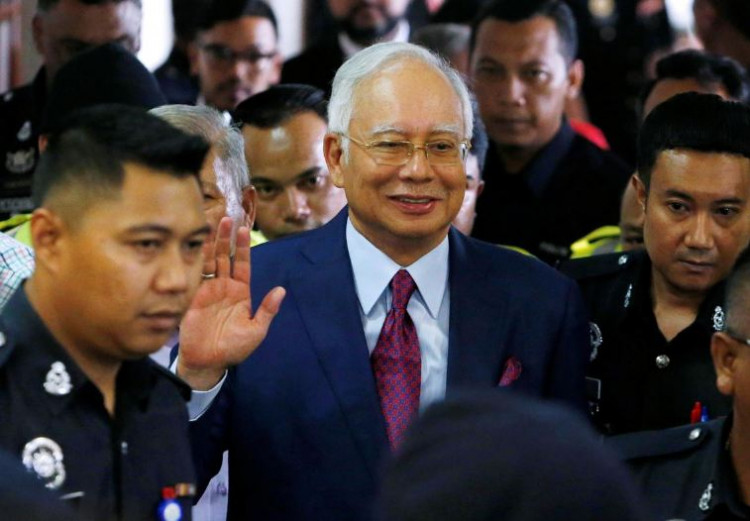Malaysia's former Prime Minister Najib Razak, once embroiled in the extensive 1MDB corruption scandal, has seen his 12-year prison sentence for corruption charges notably reduced by half, as confirmed by the country's Federal Territories Pardon Board.
The board's decision also included a reduction in Najib's fine from the original 210 million ringgit to 50 million ringgit ($10.6 million), with the stipulation that failure to pay the fine in full would result in an additional year added to his sentence, extending his incarceration until 2029.
The 1MDB scandal, which surfaced in 2015, involved the misappropriation of billions of dollars from Malaysia's state-owned wealth fund, 1Malaysia Development Berhad, intended for the nation's economic development.
The fund, established in 2009 during Najib's tenure as prime minister, became a conduit for extensive financial fraud, with stolen funds traced to extravagant purchases, including luxury real estate, art by Van Gogh and Monet, and even the financing of the Hollywood film "The Wolf of Wall Street."
Najib's reduction in sentence has stirred significant controversy and debate, particularly given the magnitude of the 1MDB scandal and its impact on Malaysia's political and financial landscape. Critics argue that the pardons board's decision, made on the last day of King Abdullah Ahmad Shah's tenure, reflects a broader issue of impunity among Southeast Asia's political elite.
James Chin, a professor of Asian Studies at the University of Tasmania, expressed concerns that the decision sends a message that leaders in the region can act without fear of accountability.
Despite the substantial damage to his reputation from the 1MDB scandal, Najib retains a degree of popularity, particularly among grass-roots supporters of his party, the United Malays National Organisation (UMNO). UMNO, once a dominant force in Malaysian politics, remains a significant player and is part of the governing coalition led by Anwar Ibrahim, Najib's former political adversary.
The reduction in Najib's sentence and fine has reignited discussions about the challenges of ensuring accountability and justice in high-profile corruption cases. The 1MDB scandal, which involved international investigations and highlighted the role of global financial institutions like Goldman Sachs, underscores the intricate web of financial and political interests that can complicate efforts to address corruption.
Goldman Sachs, implicated in the scandal for its role in underwriting the 1MDB fund, settled with the Malaysian government for $3.9 billion in 2020, resolving charges related to its involvement.
As Najib Razak's revised sentence marks a new chapter in the 1MDB saga, the case continues to serve as a stark reminder of the complexities and challenges in combating corruption at the highest levels of power.




